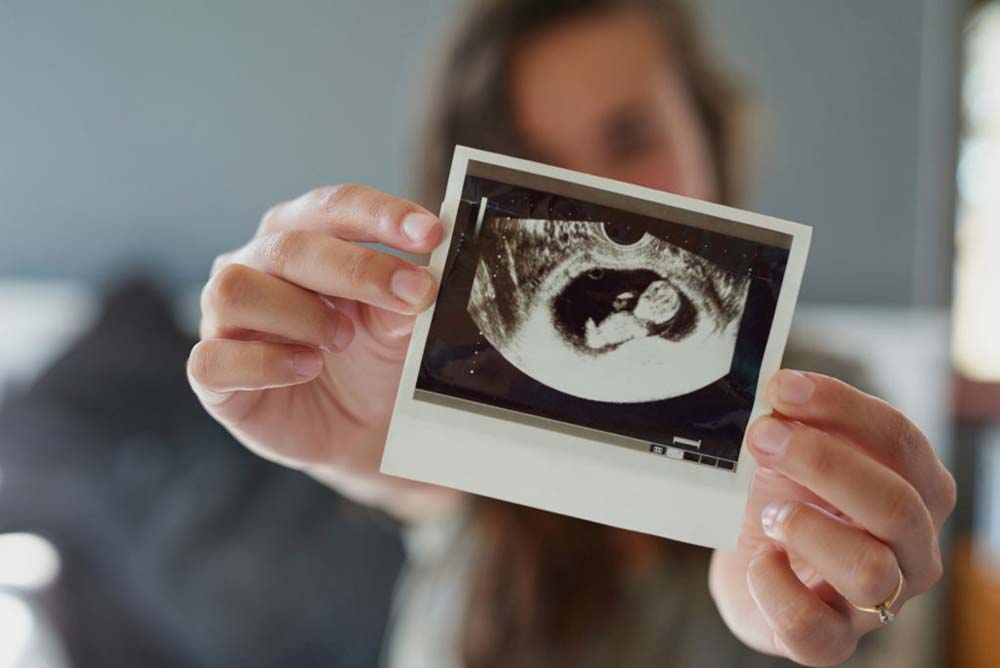Miscarriage

Most women go on to have healthy pregnancies after a miscarriage. However, for a small minority of women, recurrent miscarriage can affect their fertility. Recurrent miscarriage is the consecutive loss of three or more pregnancies in the first trimester. Around 1% of couples who are trying to conceive struggle with recurrent miscarriage. Although it can be devastating for couples facing pregnancy loss, recurrent miscarriage does not mean you can never successfully carry a baby.
Women age 35 or older can receive an evaluation after two consecutive miscarriages. Before deciding on a treatment method, Dr. Madanes will determine the cause of your miscarriage. Chromosomal abnormalities, uterine fibroids or malformations, cervix issues, thyroid issues, hormonal factors, and abnormal blood clotting are a few potential causes. After determining the cause of your recurrent miscarriage, Dr. Madanes will offer a comprehensive treatment plan, which may involve medication or surgery.

THIS IS A SAFE PLACE FOR YOUR HOPE
The experience of miscarriages can make you feel betrayed by your body.
Take control of your fertility journey and find hope to try again with Dr. Amos E. Madanes.





We know you’re afraid to try again.
We see your fear. We hear your concerns. We want to understand your dreams.

Hope for pregnancy after miscarriage or multiple miscarriages can feel dangerous.
The journey of hope after experiencing miscarriage or multiple miscarriages is an emotional tightrope, a courageous dance with vulnerability. It’s a path laden with the weight of past heartbreaks, each lost heartbeat echoing in the chambers of the soul. It’s a journey where hope and fear entwine, creating a complex tapestry of emotions that speaks to the resilience of the human spirit. In this delicate dance, we are here to offer you courage along with the best medical treatment.

Science and medicine may have the answers and treatment you need.
The causes of miscarriages are diverse and can include genetic abnormalities, chromosomal issues, hormonal imbalances, structural abnormalities of the uterus, and maternal health conditions. Comprehensive evaluation by our team can help identify and treat specific factors contributing to an individual’s or couple’s recurrent miscarriages.

We welcome your grief as part of your healing process.
Navigating the journey of trying again after miscarriage can be emotionally complex. We understand the grief and trauma that may surface, and that’s why we are committed to supporting you both emotionally and physically. Our holistic approach is designed to provide compassionate care, acknowledging the emotional toll of the experience while offering tailored physical support. Together, we strive to create a supportive environment that honors your unique journey, fostering resilience, hope, and healing.
Your Future Family Depends on Working With The Best
The first ever pregnancy in the United States to result from a non-surgical intra-tubal insemination procedure was achieved by Dr. Amos E. Madanes in December 1989. The incredible results of his technique has been brining new hope to couples for the last three and a half decades.
If you have experienced recurrent miscarriages, don’t be discouraged. Dr. Madanes has spent years helping women with recurrent miscarriage overcome infertility to achieve their dream of motherhood. Schedule a consultation with the Midwest Fertility Center to get one step closer to the family you’ve always wanted.
Find hope after miscarriages
For decades Dr. Amos E. Madanes has helped hundreds of women successfully become mothers after miscarriage or miscarriages.
Most women go on to have healthy pregnancies after a miscarriage. However, for a small minority of women, recurrent miscarriage can affect their fertility. Recurrent miscarriage is the consecutive loss of three or more pregnancies in the first trimester. Around 1% of couples who are trying to conceive struggle with recurrent miscarriage. Although it can be devastating for couples facing pregnancy loss, recurrent miscarriage does not mean you can never successfully carry a baby.
Here’s how we do it together:
- Schedule a miscarriage consultation
- Share with us your challenges and goals. We are here to listen.
- Let us set you on a plan that will make you confidence you are doing everything you can to achieve your fertility goals.

How is miscarriage treated with Dr. Amos E. Madanes?
Women age 35 or older can receive an evaluation after two consecutive miscarriages. Before deciding on a treatment method, Dr. Amos E. Madanes will determine the cause of your miscarriage. Chromosomal abnormalities, uterine fibroids or malformations, cervix issues, thyroid issues, hormonal factors, and abnormal blood clotting are a few potential causes. After determining the cause of your recurrent miscarriage, Dr. Amos E. Madanes will offer a comprehensive treatment plan, which may involve medication or surgery.
We believe that women dealing with recurrent miscarriages deserve personalized and individualized treatment plans. Causes and treatments can manifest differently in each person, and a one-size-fits-all approach may not be as effective. Schedule a consultation.
We provide access to counseling services to address the emotional impact of recurrent miscarriages, offering coping strategies and emotional support throughout your journey.
What our patients are saying
Does it really work? Will it work for me?
FAQs
IVF Q & A by Amos E. Madanes, MD
A miscarriage is the loss of a fetus before 20 weeks of pregnancy. Some women miscarry before they even miss a period or realize they are pregnant. We don’t always know why miscarriages happen, but some of the possible causes include:
- Chromosomal abnormalities
- Abnormal fetal development
- Failure of the egg to properly implant on the uterine lining
- Infection
- Trauma
- Autoantibodies
- Actual physical deformities or tumors inside the uterus
- Maternal factors, such as: Hormonal problems, lifestyle issues, alcohol and/or drug use, or malnutrition
- Health conditions, such as diabetes or thyroid issues
- 35 Years of age or older
- Three or more previous miscarriages
It is important for women to get the support they need after a miscarriage to ensure their emotional and physical well-being.
Women who miscarry soon after the embryo has implanted in the uterus often mistake bleeding from miscarrying as their period.
Although these symptoms do not always indicate a miscarriage, you should contact the Midwest Fertility Center if you experience any of the following:
- Mild to severe back pain
- Sudden decrease in pregnancy symptoms
- Weight loss
- White or light pink discharge
- Spotting, with or without cramps
- Contractions
- Passing tissue or clots through the vagina
Most women go on to have healthy pregnancies after a miscarriage. However, for a small minority of women, recurrent miscarriage can affect their fertility. Recurrent miscarriage is the consecutive loss of three or more pregnancies in the first trimester. Women age 35 or older can receive an evaluation after two consecutive miscarriages.
Around 1% of couples who are trying to conceive struggle with recurrent miscarriage. Although it can be devastating for couples facing pregnancy loss, recurrent miscarriage does not mean you can never successfully carry a baby.
Before deciding on a treatment method, Dr. Madanes will determine the cause of your miscarriage. Chromosomal abnormalities, uterine fibroids or malformations, cervix issues, thyroid issues, hormonal factors, and abnormal blood clotting are a few potential causes. After determining the cause of your recurrent miscarriage, Dr. Madanes will offer a comprehensive treatment plan, which may involve medication or surgery.
If you have experienced recurrent miscarriages, don’t be discouraged. Dr. Madanes has spent years helping women with recurrent miscarriage overcome infertility to achieve their dream of motherhood. Schedule a consultation with the Midwest Fertility Center online or by calling, to get one step closer to the family you’ve always wanted.

